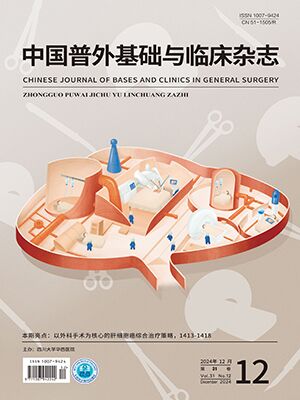ObjectiveTo investigate the change of cellmediated immunity in gut mucosa after major hepatectomy and to study its relationship with the bacteria translocation.MethodsFortyeight Spraguedawley adult male rats were randomly allocated into two groups, the sham operation group and the operation group. Besides without the hepatectomy, the sham operation group has the same course with the operation group. Seventy percent hepatectomy rats are divided as postoperative 6 h group (n=6),12 h group (n=6),24 h group (n=6) and 72 h group (n=6). Sixhour, 12hour, 24hour and 72hour after operation specimens were taken from jejunoileum respectively. Immunohistochemical staining was performed on frozen sections and image pattern analysis was used. We also investigate the change of liver function. ResultsTwentyfour hours and 72 hours after 70% hepatectomy, there was a significant reduction in the number of CD3+,CD4+and CD8+ T lymphocytes in the mucosal lamina propria of the operation group compared with the sham operation group (P lt;0.05). There was significant difference between these two groups in liver function change (P lt;0.05).ConclusionThere is an altered pattern of intestinal mucosal T lymphocytes after major hepatectomy, then the local cellmediated immunity was depressed, which may be the cause of translocation of enteric bacteria.
Citation: YANG Zhibin,ZHANG Bingyan,ZHU Hong,WANG Binghuang,GUO Yongzhang. Experimental Study on Gut Mucosal CellMediated Immunity after Major Hepatectomy and Its Relation to Bacteria Translocation in Rats. CHINESE JOURNAL OF BASES AND CLINICS IN GENERAL SURGERY, 2003, 10(5): 469-470. doi: Copy
Copyright © the editorial department of CHINESE JOURNAL OF BASES AND CLINICS IN GENERAL SURGERY of West China Medical Publisher. All rights reserved




